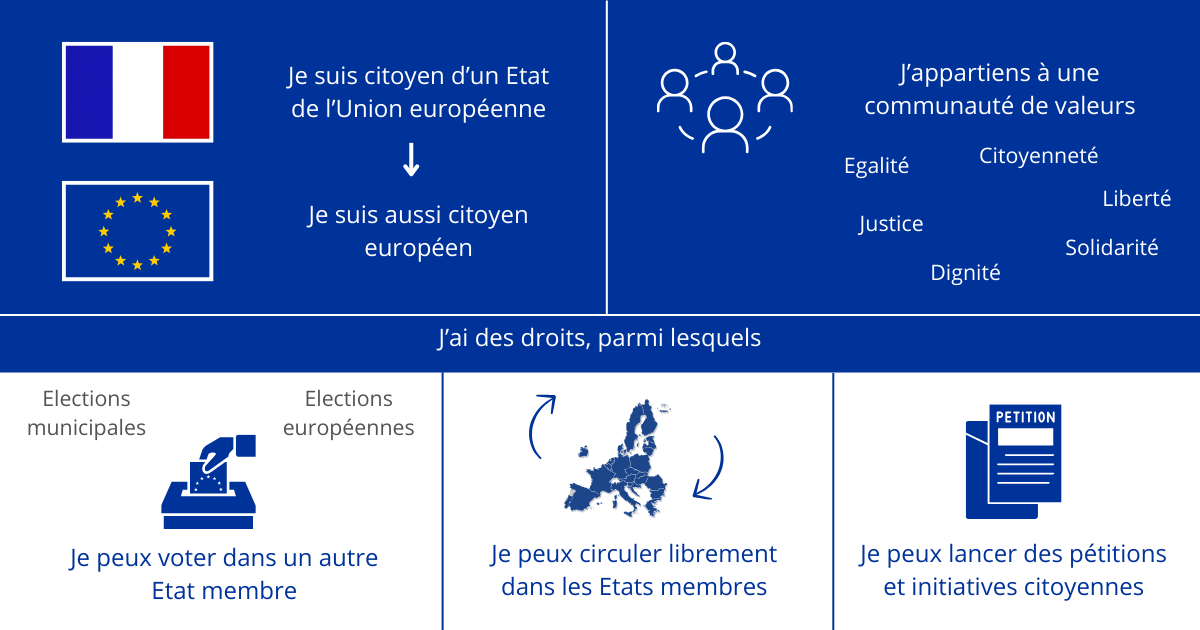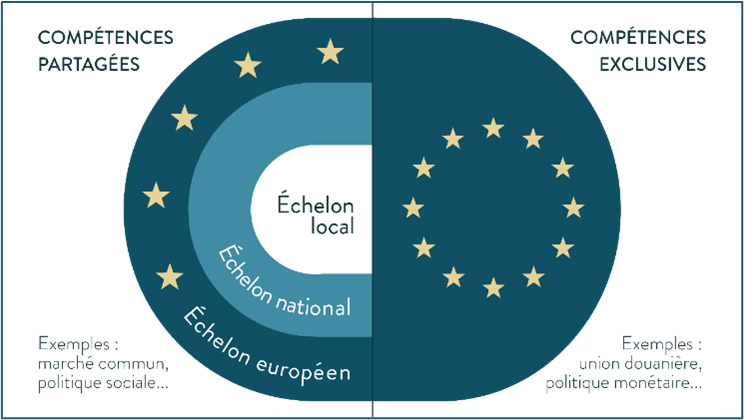The areas of action of the European Union
The European Union can only intervene in areas where its Member States have authorised it to do so.
3 main principles governing the way the European Union intervenes
- The principle of attribution The EU only intervenes in areas defined by the Treaties.
- The proportionality principle EU action cannot go beyond what is necessary to achieve the objectives set out in the Treaties.
- The subsidiarity principle In areas where the EU and Member States can intervene, the EU acts only if its action is more effective at European level than at national level.

EU competences
The European Treaties specify who can legislate and in which areas between the EU, the Member States or both.
The European Union thus has some exclusive competences, shared competences and supportive competences.
Exclusive jurisdiction
These powers have been fully transferred to the European Union by the Member States. The European Union is therefore the only one able to legislate and adopt binding acts in these areas of transferred competence.
Member States are no longer entitled to do so unless explicitly authorised by the EU.
- Customs union
- The establishment of competition rules necessary for the functioning of the internal market
- Monetary policy for EU countries whose currency is the euro
- The conservation of marine biological resources under the common fisheries policy
- Common commercial policy
- The conclusion of international agreements under certain conditions
Shared competencies
In these areas, the EU and the Member States can adopt legislation.
Member States can only do so if the EU has decided not to do so or has not yet proposed legislation.
- The internal market
- Social policy, for the specific aspects defined in the Treaty exclusively
- Economic, social and territorial cohesion
- Agriculture and fisheries
- Environment
- Consumer protection
- Transport
- Trans-European networks
- Energy
- The area of freedom, security and justice
- Common Public Health Safety Issues
- Research, technological development and space
- Development cooperation and humanitarian aid
Support skills
These areas of competence remain the responsibility of the Member States, but the EU can support, coordinate or complement their action, without being able to legislate in these areas.
- Protection and improvement of human health
- Industry
- Culture
- Tourism
- Education, vocational training, youth and sport
- Civil protection
- Administrative cooperation
Competences « special »
In some areas, the EU can play a special role or go beyond what is provided for in the Treaties.
- Coordination of economic and employment policies
- The definition and implementation of the common foreign and security policy
- The «flexibility clause» which under strict conditions allows the EU to intervene outside its normal areas of responsibility


